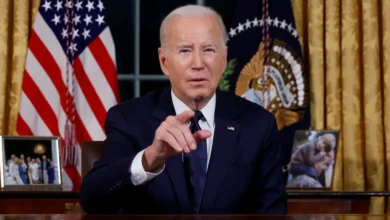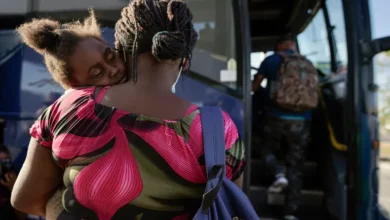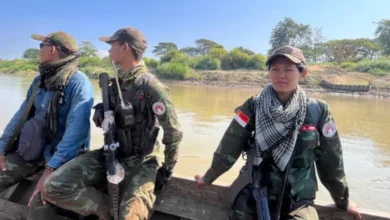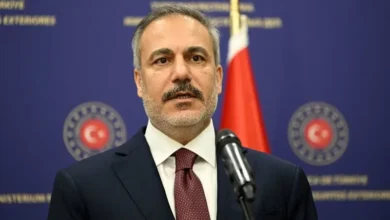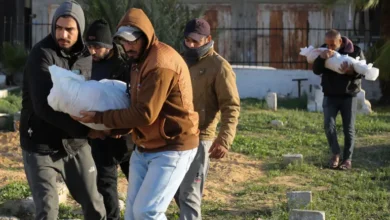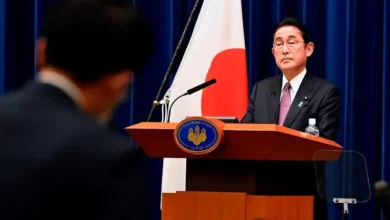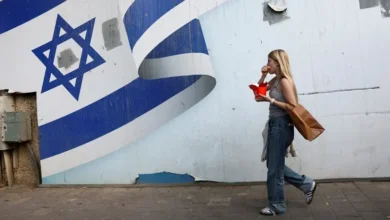Iran airs ‘confessions’ of suspects accused of poisoning schoolgirls
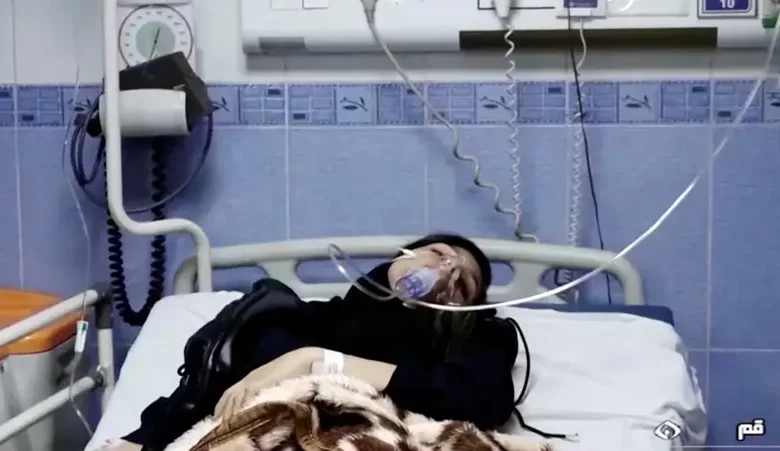
Iran’s state television on Friday aired what it claims to be confessions of suspects accused of poisoning schoolgirls in a city in south-central Iran.
The report alleged that a man who worked at a hospital in the city of Lar in Fars province, along with his daughter and some of her classmates, “prepared poisonous gas to make students sick.”
According to the report, these students, with help of the father, poisoned children in seven schools in Lar.
One of the suspects in the video, a young woman speaking to a state television reporter with her back to the camera, said that they used a “colorless gas” which they threw into school yards from outside the schools.
The report said that the suspects filmed the students after poisoning them and sent the footage to foreign-based media.
The woman said their motive behind poisoning school children was to turn people against the regime.
The televised report showed five individuals – two men and three women – in prison uniforms facing a wall.
According to the report, three of them had previously been arrested due to “subversive actions” in recent protests.
Iranian state media commonly air such reports. The practice is condemned by rights groups who say the confessions are often forced and extracted through torture.
Hundreds of schools and thousands of schoolchildren, mainly female students, have been affected by the poisonings, which have gripped Iran since November.
Symptoms reported by students include headaches, heart palpitations, lethargy, and an inability to move. Some have also described smelling unusual scents such as tangerines, chlorine, or cleaning agents.
On Tuesday, Iran’s Interior Ministry said it arrested several people allegedly linked to the wave of school poisonings and accused some of connections to “foreign-based dissident media” and recent protests.
Some in Iran have speculated that pro-regime extremists opposed to women’s education may be behind the suspected attacks.
Others, including prominent dissidents, have accused the regime of being responsible for the attacks. They believe that the poisonings, which come more than five months after protests that spread across Iran following Mahsa Amini’s death, are a form of “revenge” against schoolgirls for participating in the protests.
Earlier this week, Supreme Leader Ali Khamenei said that if the poisonings are proven to be deliberate attacks, the perpetrators “should be sentenced to capital punishment.”
Prior to that, President Ebrahim Raisi described the poisonings as a “conspiracy,” blaming Tehran’s “enemies” without naming any specific countries, though the term “enemy” is often used by Iranian officials to refer to the US and Israel.
Amini died on September 16 after being arrested by the morality police in Tehran for allegedly breaching the country’s strict dress rules for women.
Her death triggered months of protests that quickly escalated into calls for the overthrow of the Islamic Republic.
Schoolgirls across Iran joined the protests, with many videos on social media showing them taking off headscarves and chanting anti-government slogans, including on school premises.

